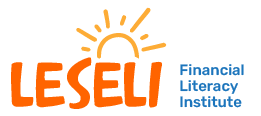

Welcome to Leseli Financial Literacy Institute (LFLI), where we believe that a well-organized financial life is the key to unlocking true financial success. Managing your personal finances effectively requires more than just making wise investment choices; it begins with a solid foundation – the organization of your crucial financial documents.
Organizing important documents” refers to the process of systematically arranging and categorizing essential paperwork, both physical and digital, in a manner that facilitates easy retrieval and efficient management. This organization is vital for various aspects of personal and financial life. Here’s what it generally involves:
- Categorization: Sorting documents into different categories or folders based on their nature. Common categories include banking, insurance, investments, taxes, legal documents, and personal records.
- Storage: Choosing appropriate storage solutions for physical documents, such as filing cabinets, folders, or binders, and for digital documents, such as cloud storage or electronic filing systems.
- Labelling: Clearly labeling folders or containers with the contents and the date, if applicable, to quickly identify and locate specific documents when needed.
- Prioritization: Determining the importance and urgency of various documents. This helps in focusing on what needs immediate attention and ensures that critical documents are readily accessible.
- Digital Organization: For electronic documents, creating a systematic folder structure on computers or cloud services, with clear naming conventions, makes it easier to locate files.
- Regular Maintenance: Periodically reviewing and updating the organized system to remove outdated documents, add new ones, and ensure that the information remains current.
- Backup: Implementing a reliable backup system, especially for digital documents, to prevent data loss in case of hardware failure, theft, or other unforeseen events
- Security: Considering the sensitivity of certain documents, implementing security measures to protect personal and financial information from unauthorized access. This may involve password protection or encryption for digital files.
Importance of Document Organization
Time Efficiency: Our lives are busier than ever, and time is a valuable commodity not to be wasted. Efficiently organized financial documents save you time, enabling quick access to essential information when it is needed most.
Financial Clarity: Gain a clearer understanding of your financial picture. Proper organization allows you to track income, monitor expenses, and assess investment performance seamlessly.
Stress Reduction: Emergencies and unexpected events are part of life. Reduce stress by knowing exactly where your important documents are stored, whether it’s for insurance claims, medical situations, or financial reviews.
The Benefits
- Financial Awareness
As documents are organized, heightened financial awareness is experienced as spending is easily analyzed, opportunities for improvement are identified and informed decisions are made.
- Legal Compliance
It is easy to stay on the right side of the law as people are guided in understanding their legal obligations related to documents management, also ensuring compliance and peace of mind.
- Goal Tracking
Financial goals are achieved with ease by keeping track of savings plans, investment portfolios, and debt reduction strategies through organized document systems.
At Leseli Financial Literacy Institute (LFLI), we are committed to empowering individuals on their personal financial journey. By organizing your important documents, you lay the groundwork for financial success. We are more than happy to be your partner in achieving your goals.
